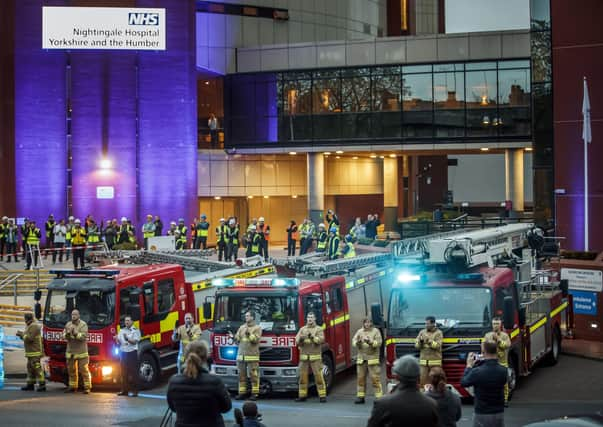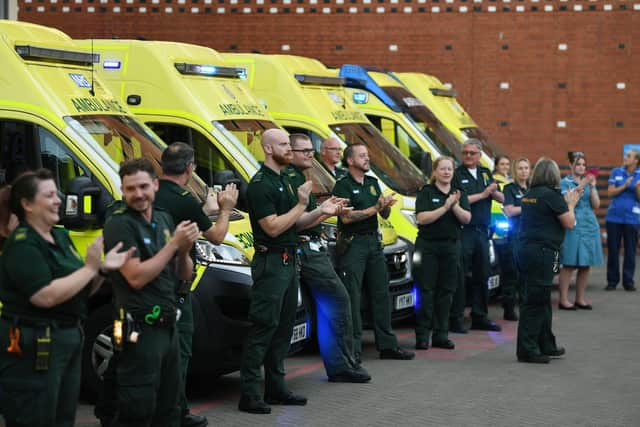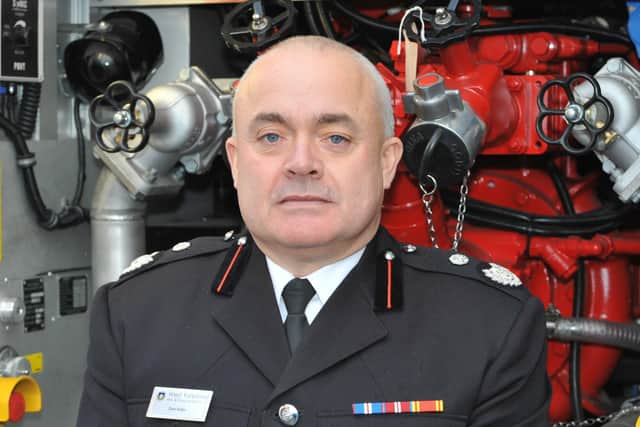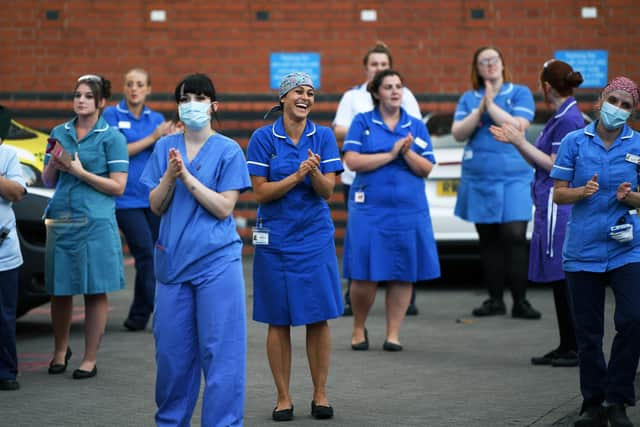What pandemic teaches us one year after ‘major incident’ declared – Dave Walton


On Friday March 20, 2020, West Yorkshire Prepared – the Local Resilience Forum covering the five local authority areas, with a population of over 2.3m people – declared a ‘major incident’ over what the World Health Organisation had then only just described as a pandemic.
We did this in advance of the national lockdown due to the impacts we could already see happening across West Yorkshire.
Advertisement
Hide AdAdvertisement
Hide AdWe normally declare major incidents for floods, or major fires and the like, and they normally last for a day or two because the level of effort required to resource the accompanying multi-agency effort is so intense.


Yet here we are 12 months later and still not clear when we will ‘stand down’.
It has been an extraordinary year.
There is a phrase, often used in emergency response circles, that says ‘go early, and go big’.
In short, it means try and get everything you might possibly need to manage a situation in place before the need is critical – that way you have options when a situation deteriorates. We ‘went early’ because we could see what has happening as the virus spread in our communities, we knew we needed to act quickly and that we needed to be ready.


Advertisement
Hide AdAdvertisement
Hide AdWe ‘went big’ but I think few of us genuinely understood how big that ‘big’ needed to be.
Many lessons have been learned as we all manage our first, and hopefully last, global pandemic.
I have been so impressed by the way that everyone has stepped up and dealt with the situation.
We’ve seen extraordinary, superhuman efforts from key public services and from communities, from individuals and groups, from producers of PPE and vaccines, and of course from everyone in every part of our healthcare system.


Advertisement
Hide AdAdvertisement
Hide AdWe should all be proud and reassured by what we have collectively achieved, for as bad as this has been for us all, it could arguably have been far, far worse.
It’s not a time for celebration though, nor will it ever be I would suggest, and it’s certainly not over yet, but now is a time for reflection.
We have collectively been working through a life-changing event, one that has left innumerable stories of tragedy, loss and hardship in its wake.
Yet, in the worst of times, we have seen the best in so many people – and it’s that spirit and determination which we now need more than ever in what is hopefully the closing stages of the acute phase of this pandemic.
Advertisement
Hide AdAdvertisement
Hide AdWhilst many will see the current situation as something close to the end of the pandemic, for some in our communities that ray of hope is proving stubbornly difficult to find.
The wonderful vaccination programme, that injects hope and viral resistance into so many, still has work to do.
The impacts of the pandemic and the outcomes people experience have been felt with inequality across communities. We know, because we’ve analysed the data, that many of the inequalities are focussed on the most deprived neighbourhoods in our area.
We know these areas are characterised by the high levels of ethnic diversity, by low incomes and the genuine and honest need to keep working to keep multi-generational households afloat.
Advertisement
Hide AdAdvertisement
Hide AdWe know manufacturing-based employment, which cannot be done from home, is dominant in many of these communities.
We also know that take up of the vaccination in these communities has been lower than in many other areas, but we’ve been working really hard to ensure that our communities are aware of the benefits and that any unhelpful myths are addressed.
The pandemic isn’t truly over until it’s over for every last one of us, and that will only be when we see some of these inequalities successfully addressed.
All of this, of course, really matters in the roadmap that signals how, and when, we will be released from current restrictions.
Advertisement
Hide AdAdvertisement
Hide AdDecisions to allow us more freedoms will be driven by data, the dates so many people are fixated on are the earliest possible dates – if the data isn’t supportive then they won’t happen.
So, as we reflect on 12 months of living under a major incident, in these strangest and most fractious of times, let us recognise our successes, mourn those we have lost, reflect on our efforts and collectively work to end the wretchedness of the pandemic in every household, in every street, and in every area across West Yorkshire.
We still have work to do.
Dave Walton is co-chair of West Yorkshire Prepared and Deputy Chief of West Yorkshire Fire and Rescue Service.
Support The Yorkshire Post and become a subscriber today. Your subscription will help us to continue to bring quality news to the people of Yorkshire. In return, you’ll see fewer ads on site, get free access to our app and receive exclusive members-only offers. Click here to subscribe.
Comment Guidelines
National World encourages reader discussion on our stories. User feedback, insights and back-and-forth exchanges add a rich layer of context to reporting. Please review our Community Guidelines before commenting.